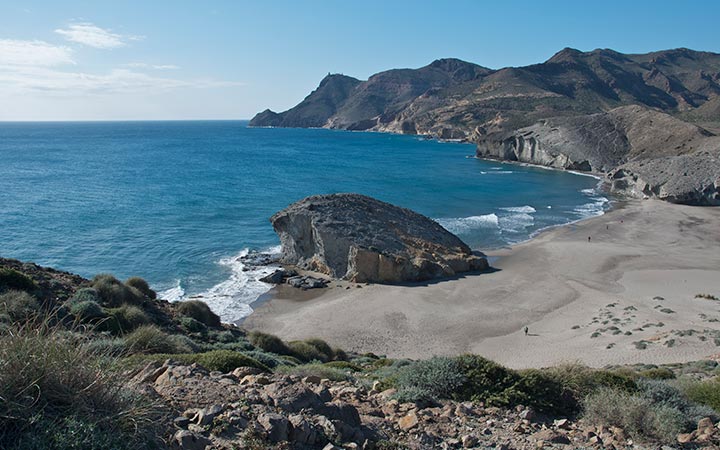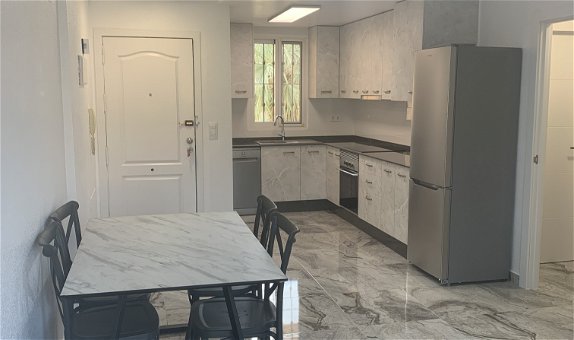As we all know, post 31/12/2020, the Transition Period ends, and the United Kingdom becomes a "Third Country", i.e. no longer able to enjoy the benefits of EU membership. One of those benefits is Freedom of Movement. This post is aimed directly at all those who are looking to move to Spain from 1/1/2021 onwards - Please note it does not deal with moving here before end of transition period
So, as from 1/1/2021, the method of moving to Spain changes - quite drastically. From this date you will need a Visa to move to Spain, which you will first apply for from the Spanish Embassy, then if granted, you can move. The four I'm going to touch on are the four most likely / common:
The first is the Golden Visa. As it's name suggests, this requires financial investment. A purchase of property, either a single property or a property portfolio of at least 500.000 € gets you this Visa
The next is the Non-Lucrative Visa. Again, the clue is in the name - Non-Lucrative - if you get this Visa class you do not have the right to work in Spain - only reside. The requirements are quite steep and have been discussed at length elsewhere, but briefly you'll need private health cover, and then "sufficient means" to cover your stay (because you can't work). After much digging (by others, thanks Beannie1), it is shown that "sufficient means" is 400% of IPREM (Indicador Público de Renta de Efectos Múltiples)
This is a financial indicator - information on it and what it does can be found HERE
Currently the IPREM is 537,84€ for a month. Therefore the primary applicant needs to prove 2,151.36 € per month (25,816.32 € annually) and For Each Dependent Applicant: 537.84 € per month (6454.08 € annually)
These numbers equate to the minimum amount of financial means you must prove. The consulate can always ask for more.
As the Transition Period has not ended yet, this information is not yet available on Gov.uk website, however, HERE is a link to an American Consulate showing the amount required, which will be identical to what British Nationals will require post Transition Period.
Please also note that the IPREM is calculated annually, and has been static since 2017, so we can expect a rise in the IPREM and a commesurate rise in the minimum amount required.
OK. So much for the Non-lucrative Visa
Next on the list is Work Visa. What follows is a copy and paste from another website - no point re-inventing the wheel!!
What is a Work Visa?
Article continues below
Workers who are not from EU countries need to obtain a Work Visa to be able to live and work in Spain. Without a Work Visa a company cannot legally employ non-EU citizens.
There are various types of Work Visas for Spain for different types of jobs and for different lengths of employment. Some of the most common types of work visas are:
Long-term Work Visas
Seasonal Work Visas
Au Pair Visas
EU Blue Card
I've dealt here only with the three most likely to be sought by those wanting to come to Spain and live and work i.e. I've not posted information for Seasonal and Au-Pair Visas
Work as an Employee (Highly-skilled)
To work in Spain as a highly-skilled employee, non-EU citizens need to find a job which is listed as a ‘Shortage Occupation’. This is a job for which there is a lack of suitable candidates within the EU. The employer must then request a Work Visa from the Ministry of Labour.
Work permit applications can take up to 8 months to process so forward planning is needed. Once the Ministry of Labour has approved the application, the embassy or consulate issue the work and residence visa.
(HERE IS A LINK TO CURRENT SHORTAGE OCCUPATIONS IN SPAIN)
Self-employed and Freelance Workers
To work in Spain as a freelance, it is necessary to apply for a Work Visa at a Spanish consulate or embassy. The work visas are valid for one year but can be renewed if all the conditions are still met. The required documentation includes:
Proof of sufficient finances to support yourself
Proof of relevant skills and experience
A business plan (if applicable)
Any contracts or commissions from companies
Any required licences or registrations (industry or job-specific)
EU Blue Card
The EU Blue Card is for people who spent at least 3 years completing a higher education qualification which allows them to work as a skilled professional. People who have a minimum of 5 years’ professional experience at a high level are also eligible. The employer submits the application on the behalf of the applicant.
A work contract that includes a salary which is at least 50% more than the average wage in Spain (or at least 20% more if the skills are in demand) is a requirement. Once approved, the worker also needs to apply for a visa from a Spanish embassy or consulate in their home country. Blue cards are valid for one year but can be renewed as long as the conditions are still met.
Still not an easy task, but may offer more options for some. I would recommend reading the Shortage Occupations link I included to see if you fall within the scope of that.
Article continues below
So, lastly, the Study or student Visa.
What is the Spain Student Visa?
A Spain Student Visa allows you to study or train, take part in a student exchange, or to work as an unpaid intern for more than three months in Spain. EU and Swiss citizens are free to go to Spain to study without a visa.
There are different types of Spanish Student Visas which are valid for different lengths of time. Students need to apply at a Spanish embassy or consulate and provide a range of paperwork. It is necessary to be accepted onto a course before applying.
Student Permit for less than 3 months (90 days)
Students from countries which are eligible for visa-free entry of up to 90 days, can take a course without obtaining a student visa (as long as the duration of the course is shorter than 90 days).
Those coming from countries which do not qualify for visa-free entry need to apply for a Schengen Student Visa. To study in Spain, applications need to be made at a Spanish embassy or consulate in the home country of the student.
Short-Term Student Visa - allows students to take a course which lasts a maximum of 180 days.
The application is less complicated than the one for longer courses as less paperwork is required. Short-term Student Visas cannot be extended under any circumstances.
Students can take Spanish language courses with this type of visa and any short-courses offered by colleges and universities.
Long-Term Student Visas - allow students to take courses which are longer than 6 months.
In addition to completing the visa application, students have to apply for a student residence card at an immigration office within a month after arriving.
For this type of visa the application involves more paperwork than the short-term visas. Applicants need to provide a medical certificate and a certificate of no criminal conviction.
Apply for a Student Visa for Spain
Applicants need to be offered a place on a course before applying for a Student Visa for Spain. The visa application needs to be submitted between two and three months before traveling to Spain to allow plenty of time for the visa to be processed.
The exact required documentation varies depending on the consulate, the individual’s circumstances, and the course the applicant wants to take. The fee for a Schengen Student Visa is currently €60 per person.
Documents required to apply for a Student Visa
Though the required documentation may vary depending on your case, the required documents required for a Student Visa are:
2 completed Schengen Visa application forms
Passport (valid until the end of your stay)
ID Card (could be driver’s license of national ID card if applicable)
Current student ID
2 recent passport photos (one for each application form)
Letter of acceptance from the course provider
Health insurance
Proof of sufficient funds to cover stay (bank statements)
Work in Spain with a Student Visa
The Spain Student Visa allows students to work part-time or in a temporary position for the duration of the course. The maximum amount of hours cannot exceed 20 hours a week, and the job must not interfere with the candidates studies.
In order for a Student Visa holder to get a job, the employer has to obtain a work permit from the Foreign Office. The employment contract cannot exceed the duration of the study visa. For internships which are part of a course, the work permit is not necessary.
Written by



















 Spain Tips and Guides: your complete guide to visiting, living and moving to Spain
Spain Tips and Guides: your complete guide to visiting, living and moving to Spain